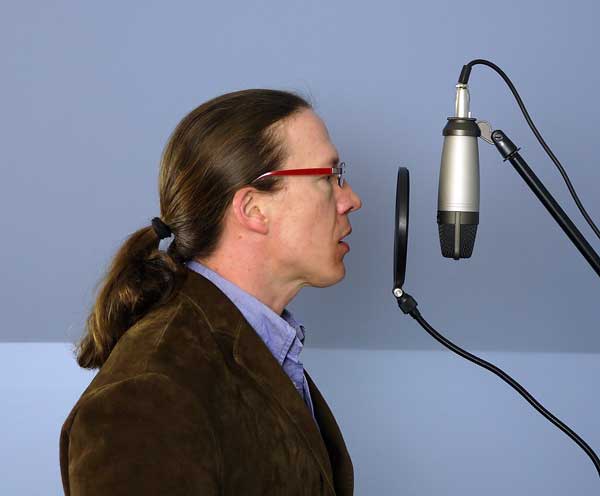I’ve just completed the first week in my Coursera course Introduction to Music Production, taught by Loudon Stearns from the Berklee College of Music. My goal is to learn more about music engineering so I can increase the quality of my podcasts and other audio and video efforts.
I wanted to share with you my first assignment. Inspired by the notion that you don’t really learn something until you have to teach it, for our first assignment of the course we had to create a short, simple lesson that taught some aspect of music production.
I chose the topic “How To: Recording Spoken Word.”
This was something I didn’t know much about, but was interested in, so I created a simple introduction to this topic in a video lesson.
Note that the assignment didn’t require we make a video—we could have written just text or made some slides or do whatever we thought would best convey the lesson.
It was mandated the video be less than 5 minutes, text lessons had to be less than 1,000 words.
Here’s something I put together with the time and resources I had: How To: Recording The Spoken Word:
Since the audio recording world is new to me, I’d appreciate any feedback or comments you might have.
What I was surprised to learn was that I am in a course with about 50,000 other students from all around the world.
No, that’s not a typo–there are a lot of students in my class.
But note that this type of course, known as a MOOC (Massive Open Online Course), is an example of how Internet technologies are changing higher education. Here’s a summary of the basic idea I wrote recently: Coursera, MOOCs, and free higher education.
Noted academic and commentator on how technology affects society, Clay Shirky has compared the rise of MOOCs in higher education to music-sharing rebel Napster’s effect on the music industry, especially in his broadside “Napster, Udacity, and the Academy.”
Just as Napster overturned the music industry’s lush apple cart, so too, argues Shirky, are MOOCs overturning the hold of higher education on education and opportunity.
Here’s the Achilles’ heel Shirky argues higher education has left open to the world:
The cost of attending college is rising above inflation every year, while the premium for doing so shrinks. This obviously can’t last, but no one on the inside has any clear idea about how to change the way our institutions work while leaving our benefits and privileges intact.
In the academy, we lecture other people every day about learning from history. Now its our turn, and the risk is that we’ll be the last to know that the world has changed, because we can’t imagine—really cannot imagine—that story we tell ourselves about ourselves could start to fail. Even when it’s true. Especially when it’s true.
Is this true? Is higher education heading for a change like the music industry?
Well, certainly the fact that higher education is changing cannot be denied. My class of 50,000 students from all around the world learning Music Production would not have happened unless MOOCs had come onto the scene. Companies like Udacity and Coursera are filling an education void to provide education to a hungry audience left unfulfilled by slow-moving universities.
Yet others will still try to pretend that this disruption is not happening.
As an example, consider the article “A MOOC is not an MP3,” where the author tries to invalidate the main point of Shirky’s article by noting a technicality, that a MOOC is indeed not an MP3.
Certainly there are differences between a MOOC course and a “traditional” university course. But I can put the amount of learning I gained from a number of “traditional” courses I’ve taken in the past into a bucket and it will be greatly outweighed by what I’ve learned so far in the courses I’ve taken from Coursera. That’s just one trivial way to disprove the author’s “automatic inferiority” assumption.
Simply noting that there are differences in the MOOC experience and then assuming MOOCs are inferior to “traditional” university courses is a false argument, and an unfortunate one, because it blinds those with the power to make meaningful changes in higher education from making them.
So, where is higher education heading?
I’m not sure the dust has yet settled. But I can say with high confidence that going forward a lot more people will have more access to learning opportunities than before MOOCs came onto the scene thanks to the power of networking and the Internet.
I think that’s good.
Unfortunately, I’m also sure that some people will continue to say that that’s bad.
